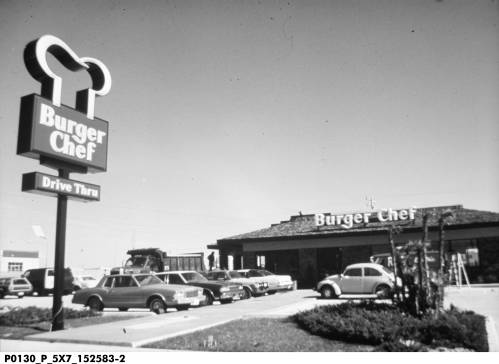
Four employees at the Burger Chef restaurant on Crawfordsville Road in Speedway, Ind., were closing the establishment at 11 p.m. on the night of Friday, Nov. 17, 1978. The bodies of those four employees — Danny Davis, 16, Mark Flemmonds, 16, Jayne Friedt, 20, and Ruth Shelton, 17 — were found the following Sunday in Johnson County. A new podcast titled “Murder Sheet” will look at the 42-year unsolved case. The podcast began on the anniversary of the homicides on Nov. 17.
Senior reporter for Business Insider and co-creator of the “Murder Sheet” podcast Áine Cain and attorney and co-creator of the “Murder Sheet” podcast Kevin Greenlee met through Newspapers.com, as Cain was researching the Burger Chef case for a Business Insider feature piece. Greenlee was researching the case for his client, the sister of one of the victims, Cain said.
This case cannot be escaped, Cain said, because the case is intriguing, upsetting and overwhelming. Both Cain and Greenlee said that they have been sucked into the case. Cain and Greenlee considered doing a different type of project about the case but decided a podcast was the best way to go about informing the public, Cain said.
“We decided that a podcast would be the best way to inform the public about this case and all of its twists and turns in a way no other medium could,” Cain said.
This case is unusual because it has received a lot of attention, but there are many intriguing details that have not been reported, Greenlee said.
“It’s a case that people think they know, but they really don’t,” Greenlee said. “There are a lot of secrets out there that we’re hoping to bring to people’s attention.”
Greenlee said that typically in homicides involving restaurants, the victims would be killed at the restaurant. He said that it is very unusual that they would be kidnapped and taken to another location. The car of one of the victims was stolen from the restaurant’s parking lot and was found a few hours later just a block away from the Speedway Police Department, Greenlee said. It was an odd place to drop a stolen car, according to Greenlee.
This case had jurisdiction issues, according to Cain, because the victims were kidnapped in Speedway, which is in Marion County, and driven across county lines to Johnson County, where the bodies were found. The FBI was involved early on in the case, knocking on doors before realizing this was not a federal crime, Cain said. The case involved several law enforcement agencies including Speedway Police, the Marion County Sheriff’s Department, the Johnson County Sheriff’s Office and the Indiana State Police.
The case has gone through different detectives and iterations over the years, Cain said, and is currently led by Indiana State Police Sergeant Bill Dalton. The case is still cold, but Dalton is looking into it, according to Cain.
Before deciding to make a podcast, Cain and Greenlee put together a spreadsheet of restaurant-related homicides similar to the Burger Chef case to see if they could connect them or why crimes like this one play out, according to Cain. The Burger Chef case is being treated as a miniseries for the podcast, outlining the case and the theories surrounding the case, Cain said. There will be approximately six episodes about the Burger Chef killings and then the podcast will transition to a “crime of the week” that will include the nearly 600 cases compiled in the spreadsheet they started, according to Cain.
The name of the podcast, “Murder Sheet,” comes from the spreadsheet of cases Cain and Greenlee put together when trying to find any links or similarities to other fast food or restaurant homicides, Cain said. Cain and Greenlee plan to draw from this sheet throughout the series and talk about different cases, Cain said.
The Burger Chef miniseries, “You Never Can Forget,” has a double meaning, according to Cain, as it was the slogan of Burger Chef in the late 1970s. The full slogan said “Open wide, America, you never can forget, you get more to like with Burger Chef.”
Cain said that community and family members cannot forget this case because it was a horrible and brutal crime, and four people lost their lives in a needlessly heinous manner.
“We really hope that people don’t forget that and don’t forget the tragedy at the heart of this case,” Cain said.
“Murder Sheet” debuted on Nov. 17, the anniversary of the Burger Chef homocides. The release date was intentional, according to Greenlee, because people may tend to pay more attention to the case around the time of the anniversary.
“We want people to notice this. We really want to get attention, not for ourselves but for the case,” Greenlee said. “Our dream would be that this might shake out some information from some listener who might finally provide the missing piece that would bring resolution to the families and friends of the victims.”
The “Murder Sheet” podcast can be found on Twitter and Instagram at @MurderSheet and on Facebook at @MSheetPodcast. The podcast releases weekly on Tuesdays and can be found on Spotify, Stitcher, Apple Podcasts, and other platforms.






